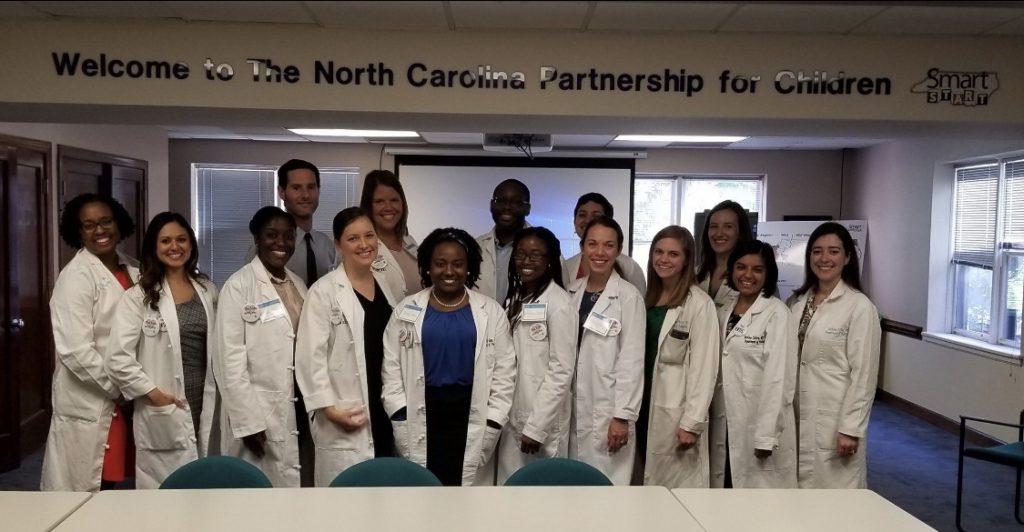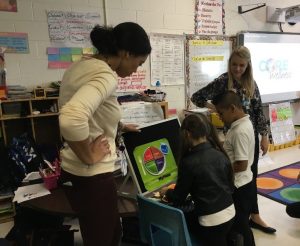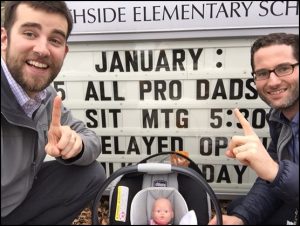Advocacy
UNC Pediatrics Residents are effective champions for children’s health and well-being

UNC’s close relationship with the North Carolina’s chapter of the AAP, its immediate proximity to the state capital, and its easy driving distance to the nation’s capital uniquely position its graduates to not only learn about advocacy, but to actively participate. Graduates of the program have gone on to be powerful voices for children locally and nationally.
Residents learn about key child health topics through a combination of core, selective, and elective opportunities. Topic areas include social determinants of health, health equity, resource awareness, and communicating a message to key stakeholders. Interns gain a fundamental understanding of core topics through small group discussion, site visits, community tours, webinars, lectures, and articles. Residents build upon this knowledge over subsequent years through selective experiences, expert guest lectures, small group discussions, and community partnerships.
Core Experiences:
All pediatricians and children’s health advocates need a core set of knowledge and skills to effectively advocate on behalf of children. During intern year, PGY1s are scheduled a two-week Community Health and Advocacy block, during which they have protected time to strengthen knowledge both of clinic processes and of fundamental child health advocacy topics. Half of this rotation is dedicated to Advocacy beyond the clinic walls, including scheduled and self-directed activities. Interns participate in a community tour, during which they visit local sites and resources vital to maintaining the health of many of their patients. They read, view, and engage with materials about structural factors affecting health, including racism, immigration policies, anti-LGBTQ+ bias, poverty, and toxic stress. They learn about protective factors and resources in their community, and ways in which they can help their patients access these resources. They hear from expert guest lecturers about legislative advocacy, social media, communicating with the media, health policy, and other topics.
Selectives:
Effective child health advocates have varying interests and skills. To foster and strengthen unique interests, residents participate in a longitudinal selective advocacy experiences. Residents participate in a set number of experiences over the course of residency, but have considerable flexibility in which areas they engage, ranging from doing in-depth reading in a particular topic area to spending a month in Washington, DC as an AAP Legislative Intern. Selective opportunities are variable and varying, including writing and op ed, meeting with legislators, presenting advocacy work at scholarly meetings, inclusivity trainings, and applying for advocacy grants.
Community Partnerships:
Residents partner with patients, community organizations, and each other to develop needed, effective, and sustainable projects that promote patient health. Residents learn how to make evidence-based, measurable, and sustainable change, so that they are not just doing something; they’re doing something effective. Residents have been successful in obtaining AAP CATCH funding for projects.
Projects:
Current and recent residents have built an in-clinic food pantry, injury prevention program at a local Head Start center, voter registration initiative, breastfeeding promotion program, enrolling families in government-sponsored insurance through schools, parenting education at a local daycare, smoking cessation partnership for families of young infants, and so many more, partnering with veterinarian to prevent dog bites, asthma management education at schools, and many more.



